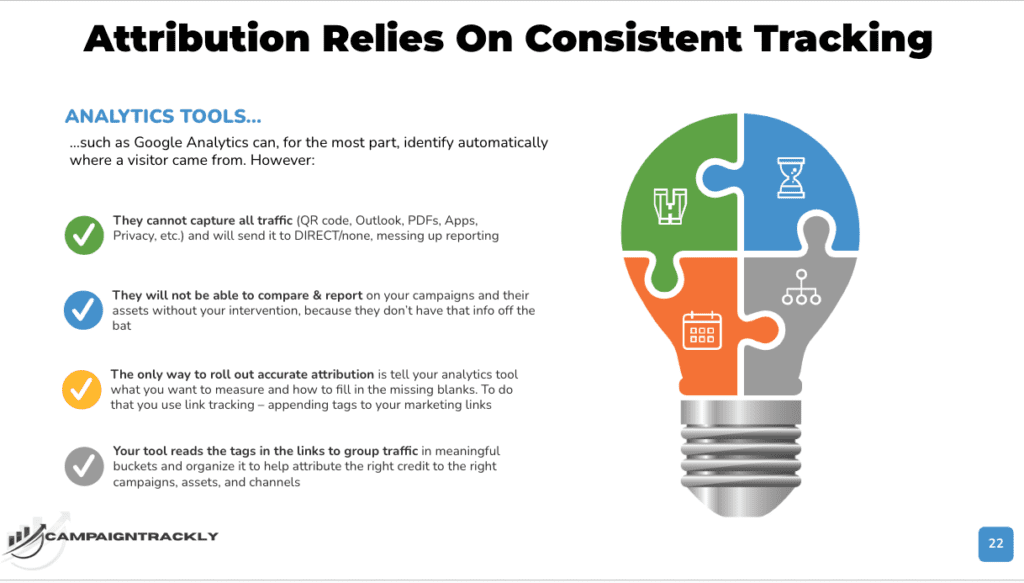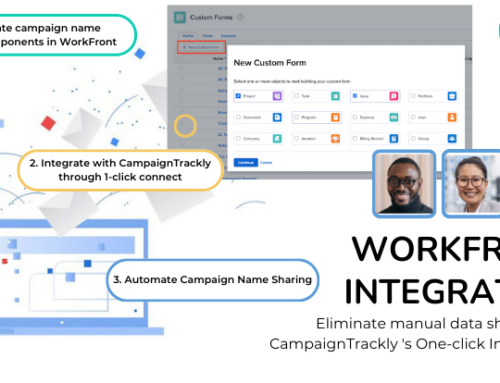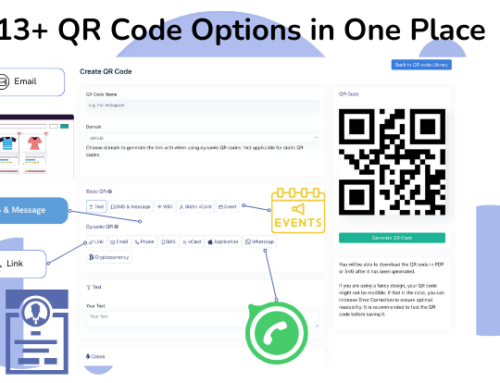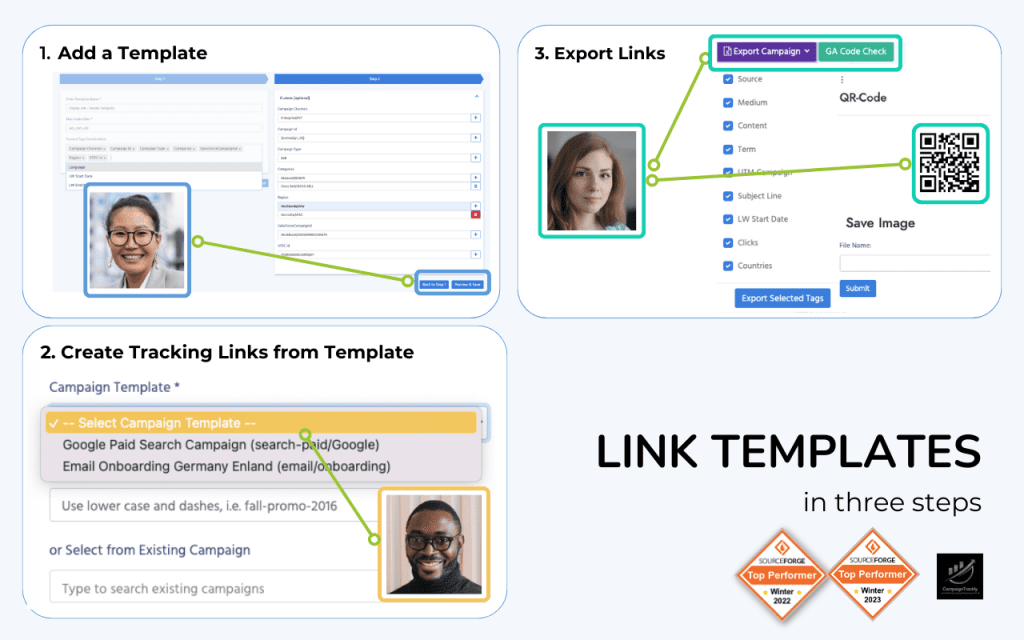By Cassie Mitova
In the world of digital marketing, UTM parameter use is a standard practice when it comes to measuring digital marketing campaign attribution. Both Google and Adobe Analytics – not to mention the myriads of other analytics tools out there – use them to give you campaign ROI reports and insights that drive your marketing decisions.
Out of all the marketing channels currently used by businesses, marketers place Video, Social Media, Email and Paid Advertising in the the top 5 most effective ways to get new customers and deliver growth.
All four require UTM parameter-based tracking to measure performance success.
Using them right lets you attribute traffic and conversions to the relevant marketing channels and campaigns, and gives you the insights you need to take control of your budget.
However, despite their widespread use, there are several common misconceptions about UTM parameter-based marketing attribution—which we’ll be debunking today.
Let’s shed some light on the truth behind UTM attribution:
1. “A UTM parameter can only track clicks.”
Reality: UTM parameters can actually track clicks and conversions, and tell you so much more about your target audience. Why? Because they do not work in isolation – they fit like a glove into your web analytics tool and enrich its reports, enabling it to tell you a story about your visitor’s origin, time spent on the page, engagement preferences, behavioral preferences, demographics and so much more.
2. “UTM parameters are complex and difficult to implement.”
Reality: Implementing UTM parameters is relatively simple and requires only a basic understanding of URL structure and tracking tools like Google Analytics. And if you use automated URL Builder platforms – you won’t need to type or memorize a single utm tag or combinations of tags. You can save time, ensure accuracy and build a solid UTM tracking process in a very short amount of time.
3. “UTM parameter set up can’t track offline conversions.”
Reality: While UTM parameters primarily track online interactions, you can also leverage unique identifiers or CRM integration to attribute offline conversions to specific campaigns. Combined with QR code, UTM tags can help you measure the success of printed materials or contact collection at events.
4. “UTM parameters are not accurate for tracking conversions.”
Reality: UTM parameters are highly accurate in tracking conversions when implemented correctly and validated against other tracking methods. If you are currently struggling to get consistent tracking results using your tracking links, maybe you may want to consider changing the method of adding the parameters and go for a more automated option.
5. “UTM parameter use affects SEO negatively.
Reality: UTM parameters have no direct impact on SEO as search engines ignore them when crawling websites.

UTM Builder On Steroids: The Easiest, Formula-free URL Tagging In Excel
Try CampaignTrackly’s Supercharged Excel UTM Builder + ChatGPT:
6. “You need new UTM parameters for every campaign.”
Reality: While each UTM parameter needs to be unique, you can use the same tags over and over – in different combinations. That’s the beauty of a well defined, standardized process – you just build your UTM library and you can use it to create different combinations called tag templates. While sometimes, you would need to add new UTM tags depending on a new content type or source, generally you end up using the same combinations of tags. As long as your UTM_campaign name is different – your campaign link combination will be unique!
7. “UTM parameters are only useful for tracking paid campaigns.”
Reality: While paid campaigns capture the largest chunk of your marketing budgets, UTM parameters are equally needed in tracking, social media, email, video, affiliates, partners, and PR, regardless of whether they are paid or not.
8. “UTM parameters reveal sensitive information to competitors.”
Reality: UTM parameters contain no sensitive information by default and are only visible within your analytics tools. In CampaignTrackly, we actually have a clever way of obfuscating your actual tracking information by using “hidden value tags”. See the brief video below to learn more about these types of tags:
9. “UTM parameters are only relevant for large businesses.
Reality: UTM parameters are valuable for businesses of all sizes, allowing them to measure campaign effectiveness and optimize their marketing efforts.
10. “UTM parameters are unnecessary if you have Google Analytics.
Reality: UTM parameters offer additional granularity and customization to your Google Analytics Reports, enabling more detailed campaign analysis. what is more, they will help your analytics tool uncover attribution reference for non-trackable aspects, such as some apps, privacy and cookie constraints, PDF documents, and more.

11. “UTM parameters impact page load time.
Reality: UTM parameters are added to the URL, but they have no impact on page load time and do not affect user experience in any significant way.
12. “UTM parameters are only beneficial for tracking direct conversions.
Reality: UTM parameters provide insights into the entire user journey, from the initial touchpoint to subsequent interactions, helping identify conversion paths.
13. “UTM parameters can’t track cross-device interactions.
Reality: UTM parameters can track cross-device interactions if users remain logged in or use consistent identifiers across devices.
14. “UTM parameters make reports too complex to understand.
Reality: With proper naming conventions and organized reporting, UTM parameters can provide clear insights, generate accurate data every single time, and actually simplify data analysis.

Discover the Secret to Crafting an Unbeatable UTM Tracking Process In 5 Simple Steps
Read the blog here
In Conclusion
UTM Parameter use in campaign marketing attribution is an essential step of campaign production and optimization. By debunking these common misconceptions, we hope to empower marketers to make informed decisions, leverage UTM parameters effectively, and gain valuable insights into their campaign performance. Remember, accurate attribution leads to more informed decision-making and ultimately drives better results for your business.
Feeling Confident About Your UTM Parameter Knowledge? Take the Quiz:
[callaction button_text=”UTM Quiz” button_url=”https://www.campaigntrackly.com/utm-tracking-code-quiz-test-your-knowledge-now/” background_color=”#5b9dd9″ text_color=”#ffffff” button_background_color=”#3c4073″ button_text_color=”#ffffff” rounded=”true”] Ready to put your UTM Tracking Codes expertise to the test? Take the quiz. You can view the right answers at the end and retake it again.[/callaction]This is a guest blog written by:













